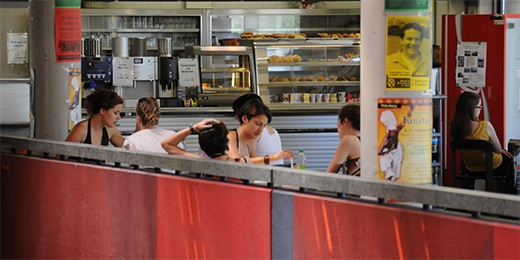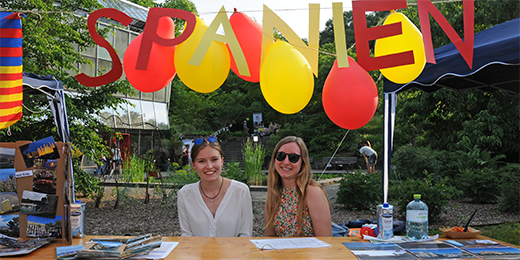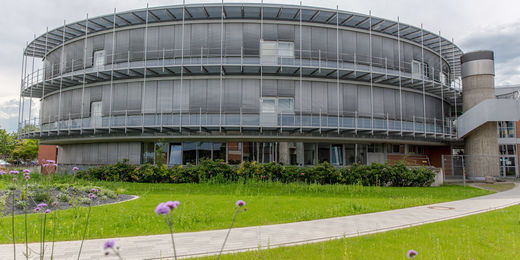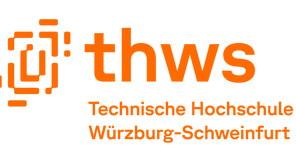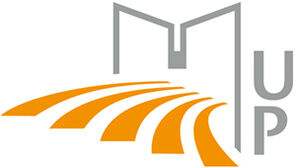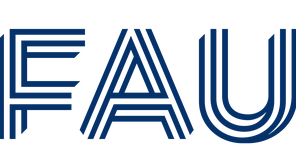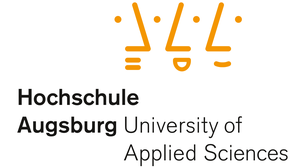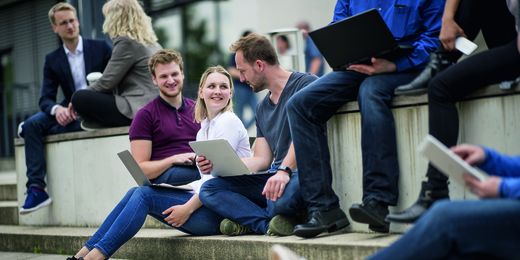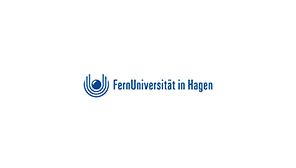Julius-Maximilians-Universität Würzburg
- Promotionsrecht: Ja
- Trägerschaft: öffentlich-rechtlich
- 1402 gegründet
- 26.126 Studierende
Schon Wilhelm C. Röntgen forschte hier. Er ist einer von insgesamt 14 Nobelpreisträgern, die einen Teil ihrer Karriere an der Uni Würzburg absolvierten. Heute kannst du aus über 250 Studiengängen wählen.
Hochschule im Fokus
Wir unterstützen dich in Sachen Studium!
Du bist dir noch nicht sicher, was der richtige Studiengang ist und die Auswahl ist riesig? Gerne unterstützen wir dich: Unsere Online-Tests können dir helfen, einen Studiengang zu finden, der zu deinen Interessen und Fähigkeiten passt. Zudem gibt es fachspezifische Online-Selbsttests für Biologie und Chemie, Informatik und Mathematik, Wirtschaftswissenschaften oder Lehramt. Vielleicht sind auch die vielfältigen Infoveranstaltungen hilfreich.
Für alle Phasen vor, während und bis zum Ende des Studiums gibt es Ansprechpersonen, die dir mit Rat und Tat zur Seite stehen. Unter Hilfsangebote haben wir die wichtigsten Anlaufstellen für dich aufgelistet. Zum Thema Studienorientierung unterstützt dich beispielsweise das Kompass Tutoring- und Mentoring-Programm mit zahlreichen Formaten. Hast du Fragen rund um ein Auslandsstudium oder willst selbst aus dem Ausland an die Uni Würzburg wechseln, ist das International Office deine Anlaufstelle. Für soziale Themen gibt es den Familienservice, die Sozialberatung oder die Beratungsangebote der Hochschulgemeinden.
90 Prozent unserer Bachelorstudiengänge sind zulassungsfrei, manche haben eine Eignungsprüfung und andere sind örtlich oder bundesweit zulassungsbeschränkt. Nicht immer ganz einfach herauszufinden, was für welchen Studiengang gilt. Wir helfen dir dabei, die Orientierung zu behalten und stehen dir mit einem guten Beratungsangebot zur Seite. Auf WueStart findest du alle wichtigen Informationen rund um die Themen Bewerbung und Zulassung.
Und sollten am Ende trotzdem noch offene Fragen sein, kannst du dich jederzeit telefonisch an die Zentrale Studienberatung unter der Telefonnummer 0931 31-83183 wenden oder eine E-Mail an studienberatung@uni-wuerzburg.de schicken.
Stimmen von Studierenden
Sanderring 2
97070 Würzburg
Tel: 0931 31-83183
Fax: 0931 31-82600
Hochschule im CHE-Ranking abschneiden.
Die Julius-Maximilians-Universität Würzburg gehört zu den Universitäten.
Ja, du kannst an der Julius-Maximilians-Universität Würzburg promovieren.
Die Julius-Maximilians-Universität Würzburg ist eine öffentlich-rechtliche Hochschule. Es gibt staatliche und staatlich anerkannte Hochschulen, die meist in Universitäten, Fachhochschulen (international: University of Applied Sciences) und Kunst- sowie Musikhochschulen unterteilt werden. Der überwiegende Teil der Hochschulen wird vom Staat finanziert und befindet sich daher in staatlicher Trägerschaft. Dort fallen in der Regel nur geringe Semesterbeiträge an. An den privaten Hochschulen hingegen, die sich über private Trägerschaften finanzieren, können wesentlich höhere Studiengebühren anfallen. Einen Weg, die finanziellen Hürden dieser Hochschulen zu umgehen, können Stipendien darstellen.
Es gibt außerdem Hochschulen, die von der protestantischen oder katholischen Kirche betrieben werden.
Die Julius-Maximilians-Universität Würzburg wurde im Jahr 1402 gegründet.
Insgesamt gibt es 26126 Studierende an der Julius-Maximilians-Universität Würzburg.
Standort dieser Hochschule ist Würzburg.
Hier findest du die Fristen und Termine für deine Bewerbung:
- Vorlesungszeit:
-
14.10.2024 - 07.02.2025
- Studienanfänger:
-
22.07.2024 - 11.10.2024
- Hochschulwechsler:
-
22.07.2024 - 11.10.2024
- International Studierende aus der Europäischen Union:
-
20.05.2024 - 15.07.2024
- International Studierende aus Staaten, die nicht Mitglied der EU sind:
-
20.05.2024 - 15.07.2024
- Studienanfänger:
-
20.05.2024 - 15.07.2024
- Hochschulwechsler:
-
20.05.2024 - 15.07.2024
- International Studierende aus der Europäischen Union:
-
20.05.2024 - 15.07.2024
- International Studierende aus Staaten, die nicht Mitglied der EU sind:
-
20.05.2024 - 15.07.2024
- Studienanfänger:
-
20.05.2024 - 15.07.2024
- Hochschulwechsler:
-
20.05.2024 - 15.07.2024
- International Studierende aus der Europäischen Union:
-
20.05.2024 - 15.07.2024
- International Studierende aus Staaten, die nicht Mitglied der EU sind:
-
20.05.2024 - 15.07.2024
- Studienanfänger:
-
20.05.2024 - 15.07.2024
- Hochschulwechsler:
-
20.05.2024 - 15.07.2024
- International Studierende aus der Europäischen Union:
-
20.05.2024 - 15.07.2024
- International Studierende aus Staaten, die nicht Mitglied der EU sind:
-
20.05.2024 - 15.07.2024
- Vorlesungszeit:
-
15.04.2024 - 19.07.2024
- Studienanfänger:
-
Die Frist ist abgelaufen
- Hochschulwechsler:
-
Die Frist ist abgelaufen
- International Studierende aus der Europäischen Union:
-
Die Frist ist abgelaufen
- International Studierende aus Staaten, die nicht Mitglied der EU sind:
-
Die Frist ist abgelaufen
- Studienanfänger:
-
Die Frist ist abgelaufen
- Hochschulwechsler:
-
Die Frist ist abgelaufen
- International Studierende aus der Europäischen Union:
-
Die Frist ist abgelaufen
- International Studierende aus Staaten, die nicht Mitglied der EU sind:
-
Die Frist ist abgelaufen
- Studienanfänger:
-
Die Frist ist abgelaufen
- Hochschulwechsler:
-
Die Frist ist abgelaufen
- International Studierende aus der Europäischen Union:
-
Die Frist ist abgelaufen
- International Studierende aus Staaten, die nicht Mitglied der EU sind:
-
Die Frist ist abgelaufen
- Studienanfänger:
-
Die Frist ist abgelaufen
- Hochschulwechsler:
-
Die Frist ist abgelaufen
- International Studierende aus der Europäischen Union:
-
Die Frist ist abgelaufen
- International Studierende aus Staaten, die nicht Mitglied der EU sind:
-
Die Frist ist abgelaufen
Als Fakultät wird eine Gruppe von Fächern oder eine Abteilung mit mehreren Wissenschaftsbereichen bezeichnet. Sie bildet eine
Lehr- und Verwaltungseinheit und ist für die Organisation von Forschung, Lehre und dem Studium an sich des jeweiligen Fachbereichs
verantwortlich.
An der Julius-Maximilians-Universität Würzburg gibt es folgende Fakultäten und Fachbereiche:
Biologie
https://www.biologie.uni-wuerzburg.de/startseite/
Chemie und Pharmazie
https://www.chemie.uni-wuerzburg.de/startseite/
Humanwissenschaften
https://www.hw.uni-wuerzburg.de/startseite/
Katholische Theologie
https://www.theologie.uni-wuerzburg.de/startseite/
Mathematik und Informatik
https://www.mathematik-informatik.uni-wuerzburg.de/startseite/
Medizin
https://www.med.uni-wuerzburg.de/startseite/
Philosophische Fakultät
https://www.phil.uni-wuerzburg.de/startseite/
Physik und Astronomie
https://www.physik.uni-wuerzburg.de/startseite/
Rechtswissenschaften
https://www.jura.uni-wuerzburg.de/startseite/
Wirtschaftswissenschaften
- Vorlesungszeit:
-
14.10.2024 - 07.02.2025
- Studienanfänger:
-
22.07.2024 - 11.10.2024
- Hochschulwechsler:
-
22.07.2024 - 11.10.2024
- International Studierende aus der Europäischen Union:
-
20.05.2024 - 15.07.2024
- International Studierende aus Staaten, die nicht Mitglied der EU sind:
-
20.05.2024 - 15.07.2024
- Studienanfänger:
-
20.05.2024 - 15.07.2024
- Hochschulwechsler:
-
20.05.2024 - 15.07.2024
- International Studierende aus der Europäischen Union:
-
20.05.2024 - 15.07.2024
- International Studierende aus Staaten, die nicht Mitglied der EU sind:
-
20.05.2024 - 15.07.2024
- Studienanfänger:
-
20.05.2024 - 15.07.2024
- Hochschulwechsler:
-
20.05.2024 - 15.07.2024
- International Studierende aus der Europäischen Union:
-
20.05.2024 - 15.07.2024
- International Studierende aus Staaten, die nicht Mitglied der EU sind:
-
20.05.2024 - 15.07.2024
- Studienanfänger:
-
20.05.2024 - 15.07.2024
- Hochschulwechsler:
-
20.05.2024 - 15.07.2024
- International Studierende aus der Europäischen Union:
-
20.05.2024 - 15.07.2024
- International Studierende aus Staaten, die nicht Mitglied der EU sind:
-
20.05.2024 - 15.07.2024
- Vorlesungszeit:
-
15.04.2024 - 19.07.2024
- Studienanfänger:
-
Die Frist ist abgelaufen
- Hochschulwechsler:
-
Die Frist ist abgelaufen
- International Studierende aus der Europäischen Union:
-
Die Frist ist abgelaufen
- International Studierende aus Staaten, die nicht Mitglied der EU sind:
-
Die Frist ist abgelaufen
- Studienanfänger:
-
Die Frist ist abgelaufen
- Hochschulwechsler:
-
Die Frist ist abgelaufen
- International Studierende aus der Europäischen Union:
-
Die Frist ist abgelaufen
- International Studierende aus Staaten, die nicht Mitglied der EU sind:
-
Die Frist ist abgelaufen
- Studienanfänger:
-
Die Frist ist abgelaufen
- Hochschulwechsler:
-
Die Frist ist abgelaufen
- International Studierende aus der Europäischen Union:
-
Die Frist ist abgelaufen
- International Studierende aus Staaten, die nicht Mitglied der EU sind:
-
Die Frist ist abgelaufen
- Studienanfänger:
-
Die Frist ist abgelaufen
- Hochschulwechsler:
-
Die Frist ist abgelaufen
- International Studierende aus der Europäischen Union:
-
Die Frist ist abgelaufen
- International Studierende aus Staaten, die nicht Mitglied der EU sind:
-
Die Frist ist abgelaufen
Biologie
https://www.biologie.uni-wuerzburg.de/startseite/
Chemie und Pharmazie
https://www.chemie.uni-wuerzburg.de/startseite/
Humanwissenschaften
https://www.hw.uni-wuerzburg.de/startseite/
Katholische Theologie
https://www.theologie.uni-wuerzburg.de/startseite/
Mathematik und Informatik
https://www.mathematik-informatik.uni-wuerzburg.de/startseite/
Medizin
https://www.med.uni-wuerzburg.de/startseite/
Philosophische Fakultät
https://www.phil.uni-wuerzburg.de/startseite/
Physik und Astronomie
https://www.physik.uni-wuerzburg.de/startseite/
Rechtswissenschaften
https://www.jura.uni-wuerzburg.de/startseite/
Wirtschaftswissenschaften
Mehr als „nur“ Uni
Die Wahl des Studiums ist häufig eine der ersten großen Entscheidungen, die wir treffen. Wer wollen wir einmal sein, was wollen wir beruflich machen – und wo gehen wir überhaupt die ersten Schritte? Sind wir mal ehrlich: Es studiert sich doch viel besser da, wo es schön ist!
Würzburg ist geprägt vom studentischen Leben. Von den knapp 130.000 Einwohnenden studieren rund 27.000 an der Julius-Maximilians-Universität. Weitere 8.000 sind an der Hochschule für angewandte Wissenschaften und der Musikhochschule eingeschrieben.
Würzburg ist jung, Würzburg ist offen. Hier treffen Menschen aus aller Welt auf unterfränkischen Charme. Gerade im Frühjahr und Sommer passiert das im Freien. Die Stadt gehört zu den wärmsten Deutschlands und Regentage sind selten. Ob zusammen an den Mainwiesen entspannen, eine Runde Spikeball im Ringpark, Joggen in den Weinbergen oder bei einem Schoppen auf der Alten Mainbrücke die Touris beobachten – Würzburg macht Laune! Zwischen Main, Cafés, Restaurants, Theatern, Kinos, Bars und Clubs ist hier für alle was dabei.
Würzburg verbindet Stadt mit Natur und Kultur. Mit vielfältigen Veranstaltungen wie Ringvorlesungen, Diskussionsrunden oder Lesungen trägt die JMU dazu bei.
Wo sonst kann man zum Beispiel Vorlesungen in einem barocken Schloss lauschen? Ok, da finden natürlich nicht alle statt. Wäre auch logistisch schwierig bei unseren aktuell 250 verfügbaren Studiengängen – Volluniversität halt, von Ägyptologie bis Zahnmedizin. Mit so viel Auswahl könnt ihr euch also ganz entspannt erstmal auf das „Was?“ konzentrieren, denn das „Wo?“ ist sowieso klar: in Würzburg!
Wenn es euch von der fränkischen Toskana dann doch mal in die weite Welt zieht, bietet die JMU eine Vielzahl an internationalen Partnerschaften und Austauschprogrammen. Mit Erasmus+ nach Schweden, Portugal oder Italien; oder direkt über den großen Teich nach Texas, Florida oder Kanada – Von Würzburg aus stehen euch alle Türen offen.
Tradition mit Zukunft
Wusstest du, dass die Julius-Maximilians-Universität Würzburg die älteste bayerische Uni ist? Bereits 1402 erhielt man in Würzburg das päpstliche Privileg zur Einrichtung einer Volluniversität. Die vierte auf dem Gebiet des heutigen Deutschlands. Fürstbischof Julius Echter von Mespelbrunn war schließlich die treibende Kraft hinter der Erneuerung der Gründung 1582.
14 Nobelpreisträger haben die JMU bisher durchlaufen: Der bekannteste: Wilhelm C. Röntgen, Entdecker der gleichnamigen Strahlen. Science for Society – Wissenschaft für die Gesellschaft – lautet das Motto. Unsere Forscherinnen und Forscher stehen für exzellente Wissenschaft. Das zeigt sich durch Auszeichnungen und starke Platzierungen in diversen Rankings.
Im Exzellenzcluster ct.qmat sind Würzburger Wissenschaftlerinnen und Wissenschaftler gemeinsam mit der TU Dresden den Geheimnissen der Quantenphysik auf der Spur. Dazu kommen aktuell insgesamt 14 Sonderforschungsbereiche mit Würzburger Beteiligung.
Von so viel Expertise profitieren natürlich auch unsere Studierenden, denn dieses Wissen wird in der Lehre weitergetragen. Bei uns findet Wissenschaft nicht im Elfenbeinturm statt, wir suchen aktiv Kooperationen mit Wirtschaft und Gesellschaft.
Du willst schon während des Studiums ein Business gründen? Hier bist du richtig! Die JMU wurde 2022 in den Top10 der gründerfreundlichsten deutschen Unis gelistet. Die Würzburger Gründerzentren und das Servicezentrum Forschung und Technologietransfer unterstützen dich von der Idee bis zum Markteintritt – und darüber hinaus: Gründe dein Business an der JMU!
Mit historischem Hintergrund die Zukunft gestalten – dafür steht die Julius-Maximilians-Universität Würzburg.














